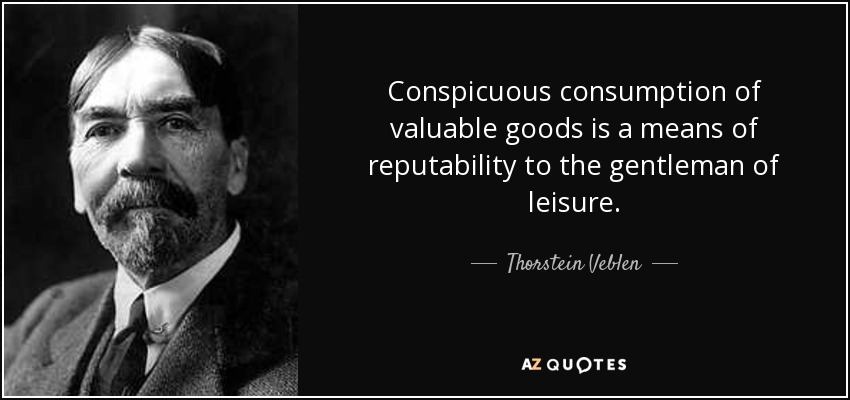
This requires to establish generalizations of the Slutsky equation, when normal or relative prices enter the utility of the consumer.

The aim of the literature on price dependent preferences is to derive and examine the formulas for comparative statics analysis of demand functions.

The theory on consumption behavior when preferences depend on prices is summarized in Pollak. Implicit in his formulation of the consumer, Veblen believes that prices do not only signal the scarcity of goods in the coordination of consumption allocations, but they do also affect the individual’s preferences. He understands that in such an economic environment, an individual utility function, which is independent of prices, is not a suitable framework for the analysis of consumption behavior of conspicuous goods. He assumes that a society evolves through individuals competing for esteem relative to other members of society, and that the display of economic power drives esteem. Veblen’s theory considers a society in which individuals carve for esteem through the consumption of conspicuous goods.

In “The Theory of the Leisure Class”, Veblen recognizes that the consumption of “more excellent goods 1” is evidence of wealth and that failure to do so becomes a mark of inferiority and demerit.


 0 kommentar(er)
0 kommentar(er)
